Dealing With Nervous Injectables Patients
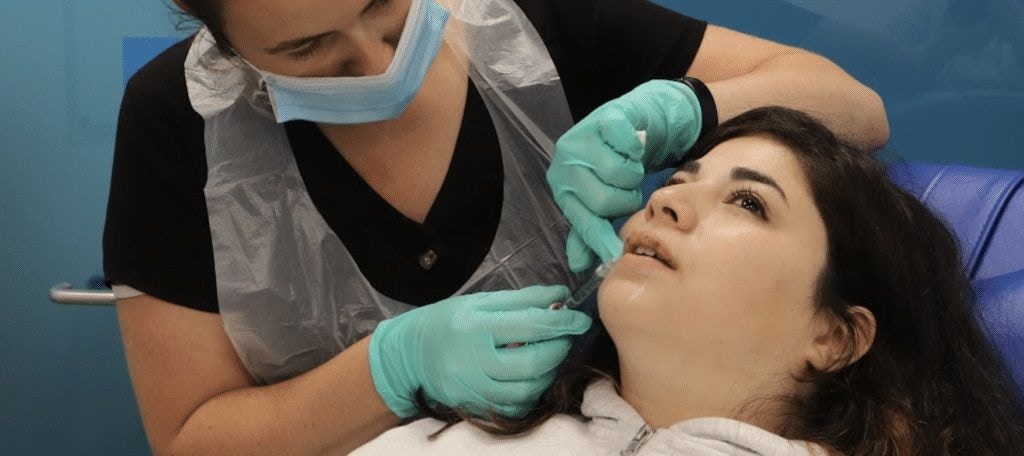
Needles aren’t everyone’s cup of tea. The thought of them, not to mention the risks involved in aesthetics procedures, can easily put otherwise enthusiastic patients off. So how do we deal with nervous injectables patients?
Our director of education, aesthetics expert Dr Kalpna Pindolia, is here to share her experience and insights. Read on for her advice on identifying and treating nervous patients.
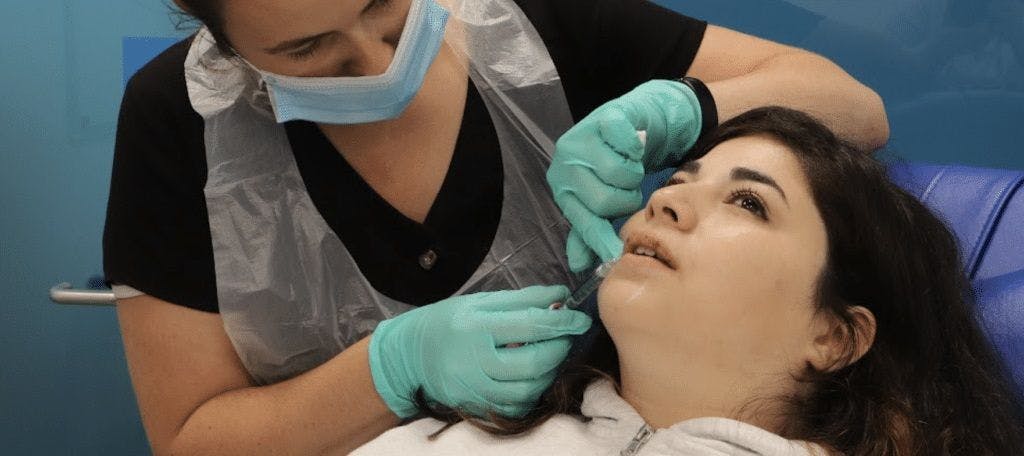
ADVICE ON DEALING WITH NERVOUS INJECTABLES PATIENTS
What constitutes a nervous patient?
A patient being nervous about having aesthetic treatments, particularly for the first time, is common. When a patient perceives there to be any kind of threat, this can cause anxiety. Concerns include:
– Are injectable treatments painful?
– Whether the outcome will be what they want
– Will they have any adverse effects or complications?
– Any unknown or unexpected aspects of the treatment
– Previous negative experiences impacting current perceptions.
All patients are unique and the cause of their anxiety and fear will be personal to them.
Recognising this and putting in place supportive strategies is an important part of long term practitioner-patient relationships. It also contributes to safe outcomes and pleasing aesthetic results.
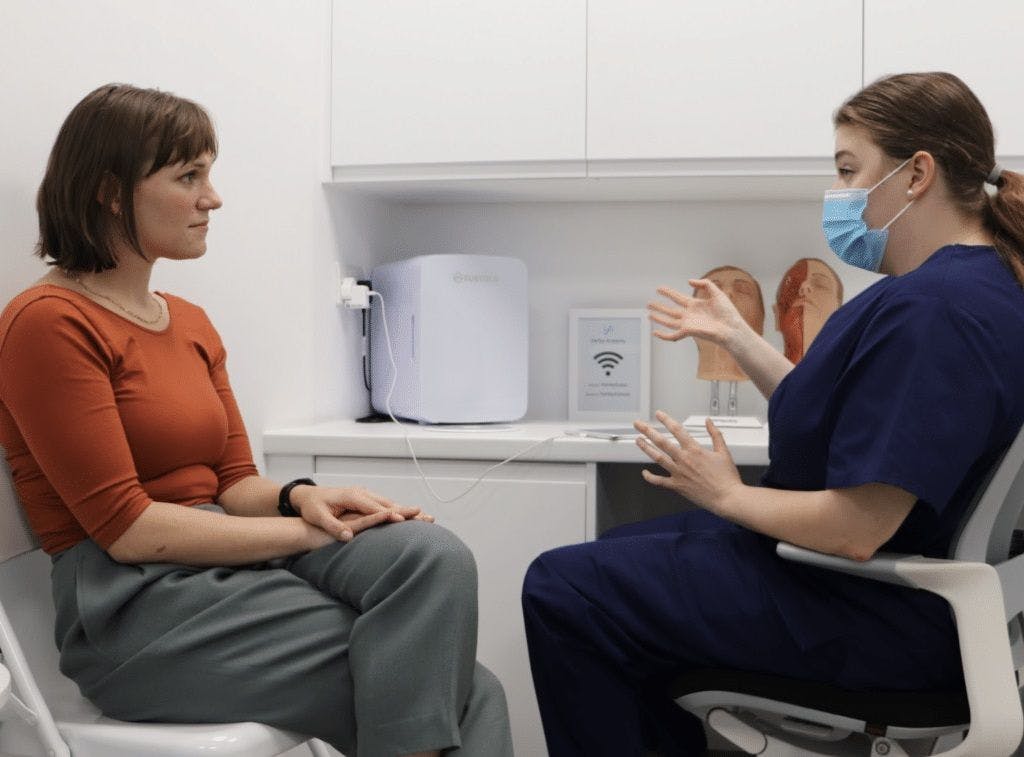
How can you tell if a patient is anxious about treatment?
A patient may not express any outward signs of anxiety, however this does not mean they are not experiencing it. Most patients will tell you if they are concerned.
You can also look for the physical symptoms of nerves which may include:
– An uncomfortable feeling in the stomach
– Feeling light-headed or experiencing dizziness
– Pins and needles in the hands or feet
– Restlessness
– Hyperventilation
– Palpitations
– Nausea
– Sweating
– Panic attacks.
Our Level 7 Diploma in Botox and Dermal Fillers students learn all about consultation skills and best practice, as well as practising these when treating patients during mentoring sessions. This is a great way to build you confidence in dealing with different kinds of people and allows you to get to know how to address their concerns under expert supervision.
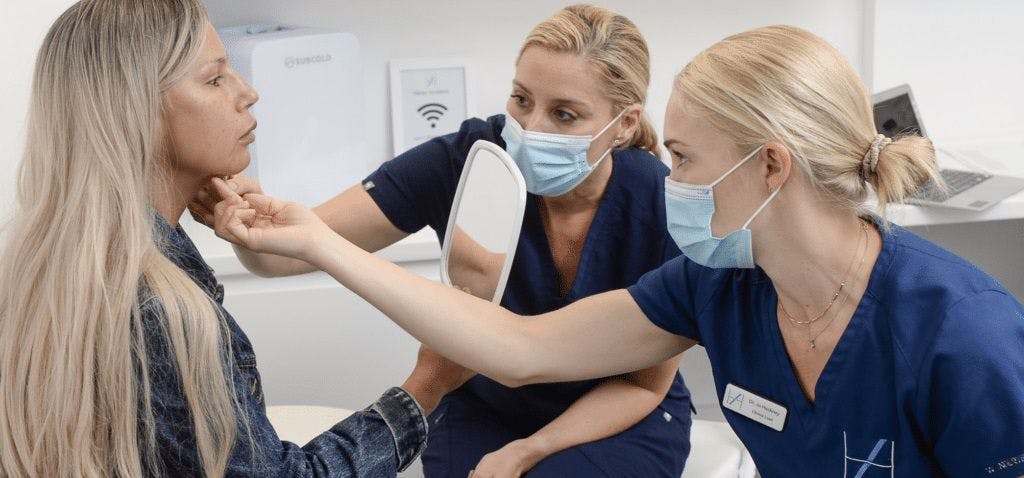
How do you determine suitability in a nervous patient?
A thorough patient consultation allows you to ascertain any concerns about treatment. Open questioning with attention to non-verbal cues, as well as active listening, will help you to assess the situation.
Deciding whether a nervous injectables patient is suitable fot treatment is often a judgement call, involving balancing various factors. The questions I ask myself are:
– Will you be able to deliver the treatment safely for them and yourself?
– How confident are you that you will be able to complete the treatment well?
– Do the benefits of treatment outweigh the level of distress?
– Are there reasonable steps that could be taken to make the experience more comfortable?
You can always consider refusing treatment if you feel you cannot fulfil their needs safely. This would usually be the case if there are symptoms of moderate to severe anxiety. I have only turned a patient down once due to excessive anxiety; most of the time, there is a way forward.
I have worked with a couple of nervous injectables patients who both had needle phobias. This can be challenging, but also very rewarding. Most patients will be really pleased that you’ve been able to work with them to get to where they want to be in the end.
Be prepared; these treatment sessions require patience, good vibes and extra care.
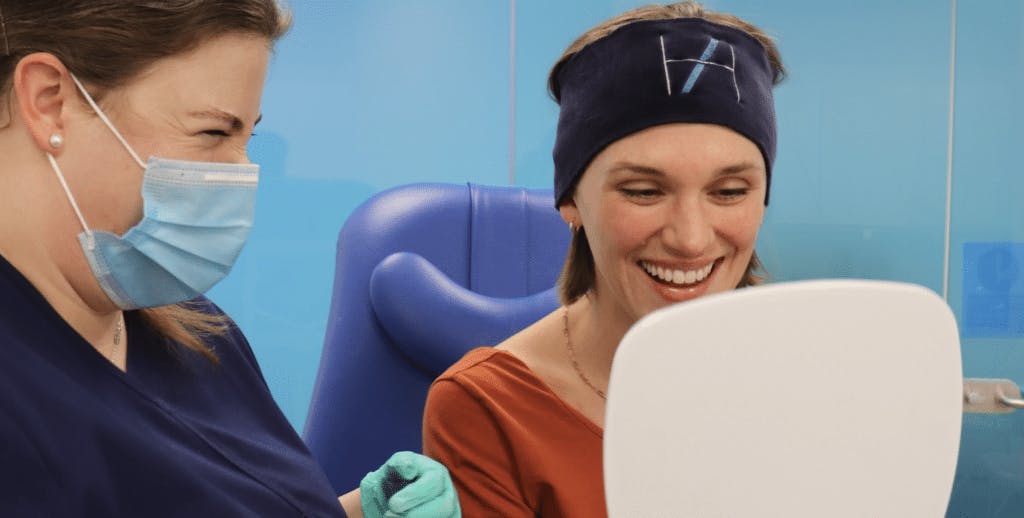
Dr Kal’s 10 tips for managing nervous injectables patients
- Use the consultation to establish a warm connection, rapport and trust
- Consider the patient’s position with empathy
- Share information clearly and simply, in both verbal and written forms
- Directly address any specific concerns that are causing anxiety
- Consider giving the patient time to reflect before they book any treatment
- Allocate extra treatment time if required
- Use specific measures to manage pain, should this be a concern; for instance, local anaesthetic use and distraction techniques
- Stay calm, assertive and reassuring during treatment
- Consider alternatives to the desired treatment which could achieve the same or similar outcomes more comfortably
- Prevent what you can; for example, hyperventilation can cause fainting so breathing exercises during treatment will help.

An example of a rewarding practitioner/nervous patient experience…
One patient I treated recently had hypnotherapy for needle phobia so she could have her Covid vaccinations. She had wanted lip fillers for a long while and, following her therapy she decided to give it a go, along with botox treatment. Following a considerate consultation, she had successful treatments and was extremely pleased with the outcome.
She explained, “”I have always been aware that my fear of needles was completely irrational, but I couldn’t control it and I had no idea how it began. People would always say ‘it doesn’t hurt!’ but it was never about the pain, it was the idea of something penetrating my skin that sent me into a panic.
“I even found it hard being in the same room, knowing syringes were present. Every time I knew I had to face a needle, I’d spend all my time beforehand obsessing about it. I couldn’t sleep, I’d feel panicked and anxious, I’ve fainted a few times while having a blood test and even cancelled appointments at the last moment.
“It has been life changing for me, meaning I could have the Covid vaccinations, a minor operation and injectable treatments without any problems, which simply would never have happened previously. The team was extremely understanding and supportive, which made a huge difference and I knew I was in safe hands.”
This was a hugely gratifying experience for both of us. There is nothing like that smile a patient makes in the mirror, when they see a pleasing result. Nervous patients successfully navigating a treatment with you is extra special… and they often become loyal clients.
All information correct at the time of publication
Download our full prospectus
Browse all our injectables, dermal fillers and cosmetic dermatology courses in one document
By submitting this form, you agree to receive marketing about our products, events, promotions and exclusive content. Consent is not a condition of purchase, and no purchase is necessary. Message frequency varies. View our Privacy Policy and Terms & Conditions
Attend our FREE open evening
If you're not sure which course is right for you, let us help
Join us online or in-person at our free open evening to learn more
Our Partners














STAY INFORMED
Sign up to receive industry news, careers advice, special offers and information on Harley Academy courses and services

